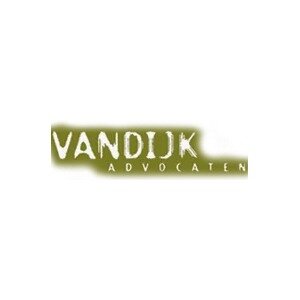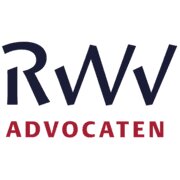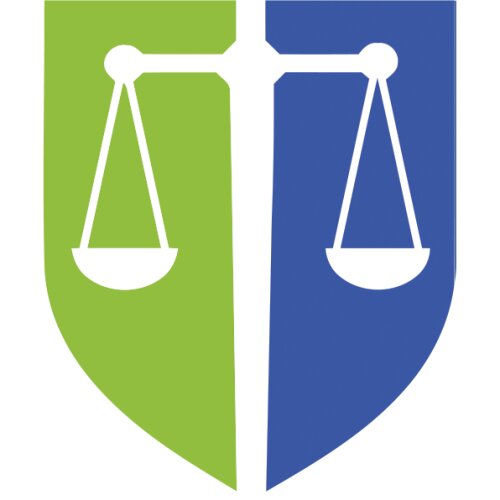Best Corporate Governance Lawyers in Netherlands
Share your needs with us, get contacted by law firms.
Free. Takes 2 min.
Or refine your search by selecting a city:
List of the best lawyers in Netherlands
About Corporate Governance Law in Netherlands
Corporate governance in the Netherlands refers to the system by which companies are directed and controlled. It encompasses the relationships between a company's management, its board, shareholders, and other stakeholders. Dutch corporate governance principles are designed to promote transparency, accountability, and fair decision-making within organizations. The framework largely applies to companies listed on the Dutch stock exchange, but many unlisted and private entities also follow these guidelines to maintain credibility and trust with investors and stakeholders.
Why You May Need a Lawyer
Corporate governance issues can arise in many forms and often require specialized legal expertise. Here are some common situations where legal help might be necessary:
- Establishing corporate structure and internal controls.
- Drafting or reviewing articles of association and bylaws.
- Navigating conflicts of interest at the board level.
- Responding to regulatory investigations or enforcement actions.
- Ensuring proper shareholder rights and protections.
- Advising on executive compensation and disclosure obligations.
- Managing mergers, acquisitions, or other major corporate changes.
- Handling disputes between directors, shareholders, or stakeholders.
- Interpreting compliance with the Dutch Corporate Governance Code.
Lawyers with expertise in corporate governance can provide guidance on compliance, represent you in legal proceedings, and help ensure your company operates within the lawful and ethical boundaries established in the Netherlands.
Local Laws Overview
Dutch corporate governance is primarily guided by the Dutch Civil Code and the Dutch Corporate Governance Code. Key aspects include:
- Two-tier board system: Many large Dutch companies operate with both a management board (executive) and a supervisory board (non-executive), each with distinct responsibilities.
- Shareholder rights: Shareholders have significant power, including voting rights on major decisions and the right to call meetings under certain circumstances.
- Transparency and disclosure: Companies must regularly provide updates about their financial condition, performance, and governance policies.
- Corporate Social Responsibility: Increasing attention is being paid to environmental, social, and governance (ESG) factors, with companies encouraged to consider stakeholder interests beyond just profitability.
- Compliance with the Dutch Corporate Governance Code: This Code sets out current best practices for listed companies, laying out rules for management, supervision, and reporting. Although applying the Code is based on a "comply or explain" principle, failure to follow it must be justified to shareholders and can attract regulatory scrutiny.
Frequently Asked Questions
What is the Dutch Corporate Governance Code?
The Dutch Corporate Governance Code sets best-practice standards for listed companies regarding management conduct, board responsibilities, shareholder engagement, and disclosure. Companies must either comply with its provisions or explain deviations to shareholders.
Who does the Dutch Corporate Governance Code apply to?
The Code applies to all publicly listed companies in the Netherlands, but many private companies voluntarily follow its principles to build trust among stakeholders.
What is the difference between the management board and supervisory board?
The management board runs the day-to-day operations and implements strategy, while the supervisory board oversees management, ensuring compliance and representing the interests of shareholders and stakeholders.
What rights do shareholders have in Dutch corporate governance?
Shareholders can vote on key decisions, attend general meetings, propose agenda items for meetings, and in some circumstances, can call a meeting if their concerns are not addressed.
Are there requirements for diversity on boards?
Yes, Dutch laws encourage diversity in terms of gender and background on both management and supervisory boards, with certain targets set for listed companies.
How are corporate governance issues enforced in the Netherlands?
Enforcement is primarily through shareholder activism, regulatory oversight by the Netherlands Authority for the Financial Markets (AFM), and, if necessary, court procedures.
What is “comply or explain” in the Dutch Corporate Governance Code?
The “comply or explain” principle means companies must either follow the rules in the Code or publicly explain their reasons for not doing so, allowing shareholders to assess the company’s governance approach.
What are some common corporate governance pitfalls?
Common issues include conflicts of interest, lack of transparency, poor record-keeping of board decisions, inadequate stakeholder engagement, and failure to comply with the Code.
Is external auditing required for companies in the Netherlands?
Yes, most large and medium-sized Dutch companies must have their financial statements audited by an external, certified auditor, as mandated by law.
Can foreign investors influence Dutch corporate governance?
Yes, foreign investors who hold shares in Dutch companies have similar rights to domestic shareholders and can influence corporate governance through voting, proposals, and engagement.
Additional Resources
For those seeking more information or support with corporate governance in the Netherlands, the following organizations may be helpful:
- The Netherlands Authority for the Financial Markets (AFM)
- Chamber of Commerce (Kamer van Koophandel - KvK) Netherlands
- The Dutch Bar Association (Nederlandse Orde van Advocaten)
- Corporate Governance Code Monitoring Committee
- Dutch Ministry of Justice and Security
- The Dutch Association of Listed Companies (Vereniging Effecten Uitgevende Ondernemingen - VEUO)
Next Steps
If you need legal assistance with corporate governance in the Netherlands, take the following steps:
- Assess your situation and identify your specific concerns or questions related to corporate governance.
- Gather relevant documents such as company statutes, shareholder agreements, board meeting records, and correspondence with stakeholders.
- Reach out to a qualified Dutch law firm or corporate governance specialist experienced in Dutch law and familiar with your industry.
- Prepare a clear summary of your issue to discuss with your lawyer, so they can provide tailored advice and recommend next steps.
- Stay informed about Dutch regulatory changes and best practices, especially if you play a decision-making role in your company.
Proper legal advice ensures compliance and helps protect your business's reputation, value, and relationships with stakeholders.
Lawzana helps you find the best lawyers and law firms in Netherlands through a curated and pre-screened list of qualified legal professionals. Our platform offers rankings and detailed profiles of attorneys and law firms, allowing you to compare based on practice areas, including Corporate Governance, experience, and client feedback.
Each profile includes a description of the firm's areas of practice, client reviews, team members and partners, year of establishment, spoken languages, office locations, contact information, social media presence, and any published articles or resources. Most firms on our platform speak English and are experienced in both local and international legal matters.
Get a quote from top-rated law firms in Netherlands — quickly, securely, and without unnecessary hassle.
Disclaimer:
The information provided on this page is for general informational purposes only and does not constitute legal advice. While we strive to ensure the accuracy and relevance of the content, legal information may change over time, and interpretations of the law can vary. You should always consult with a qualified legal professional for advice specific to your situation.
We disclaim all liability for actions taken or not taken based on the content of this page. If you believe any information is incorrect or outdated, please contact us, and we will review and update it where appropriate.
Browse corporate governance law firms by city in Netherlands
Refine your search by selecting a city.
















